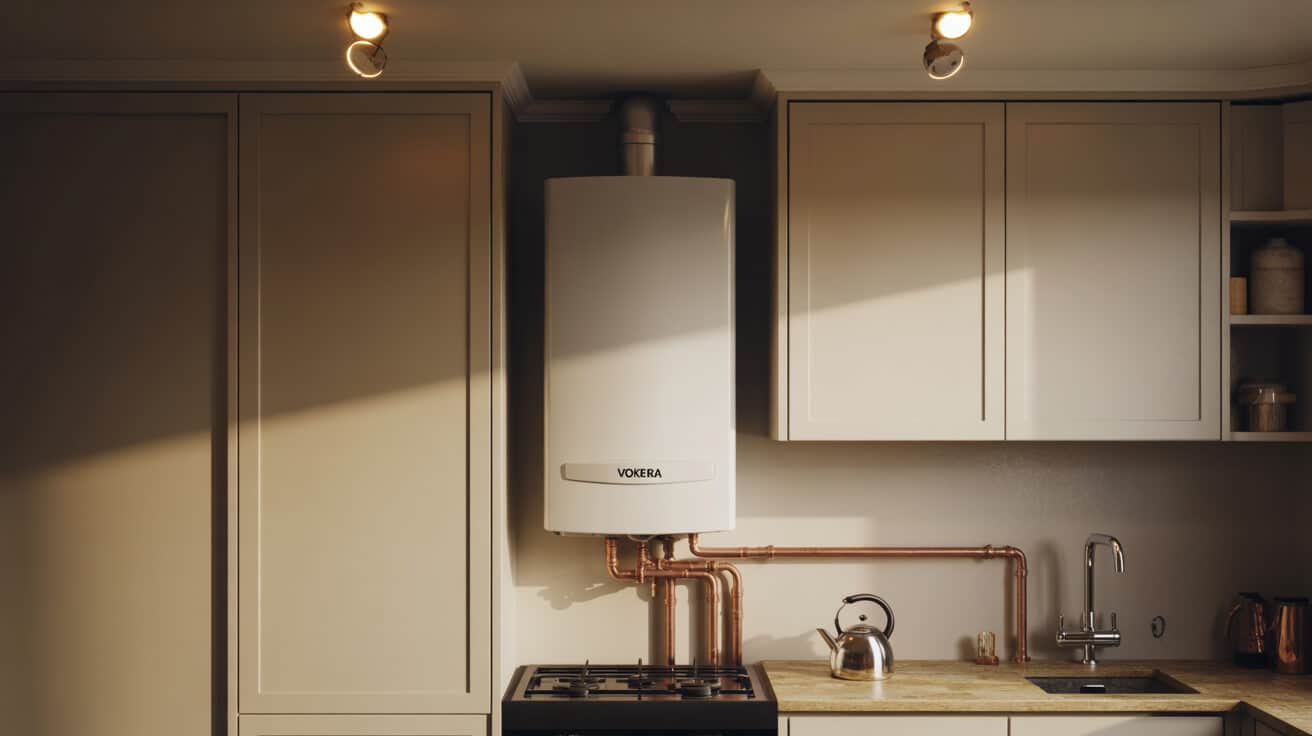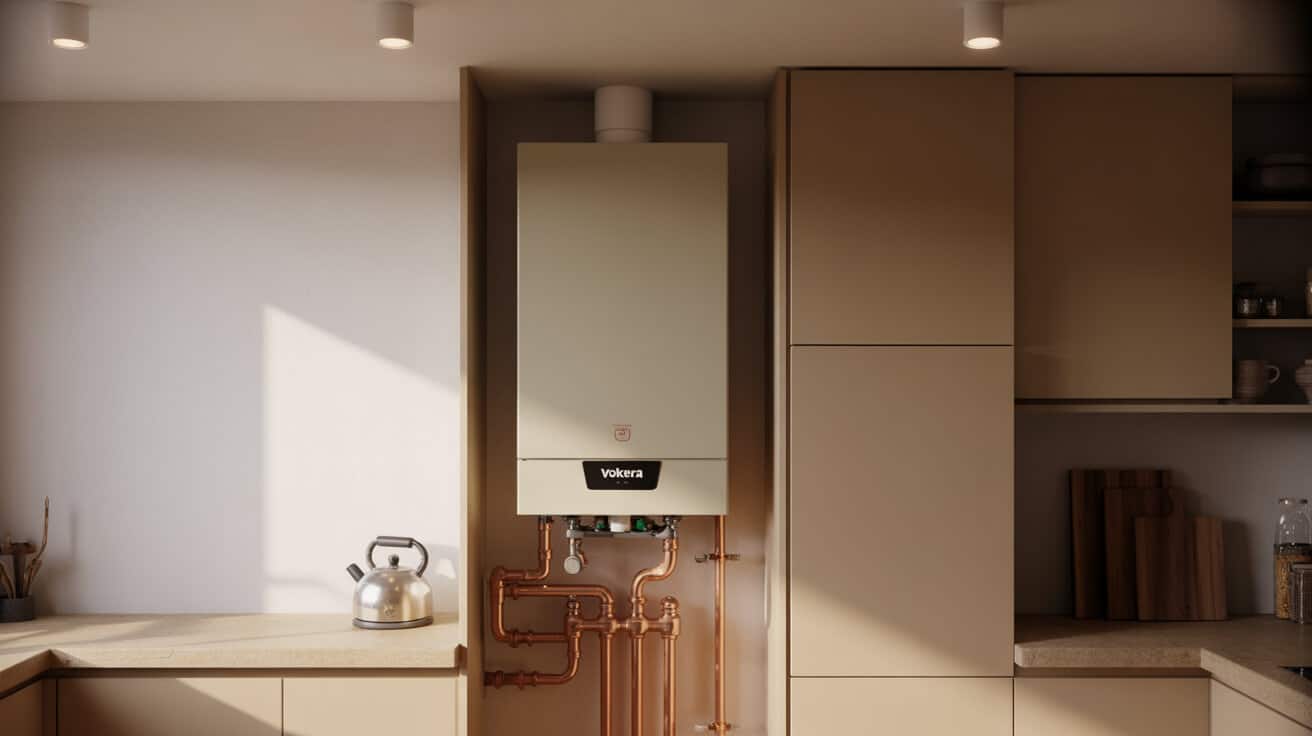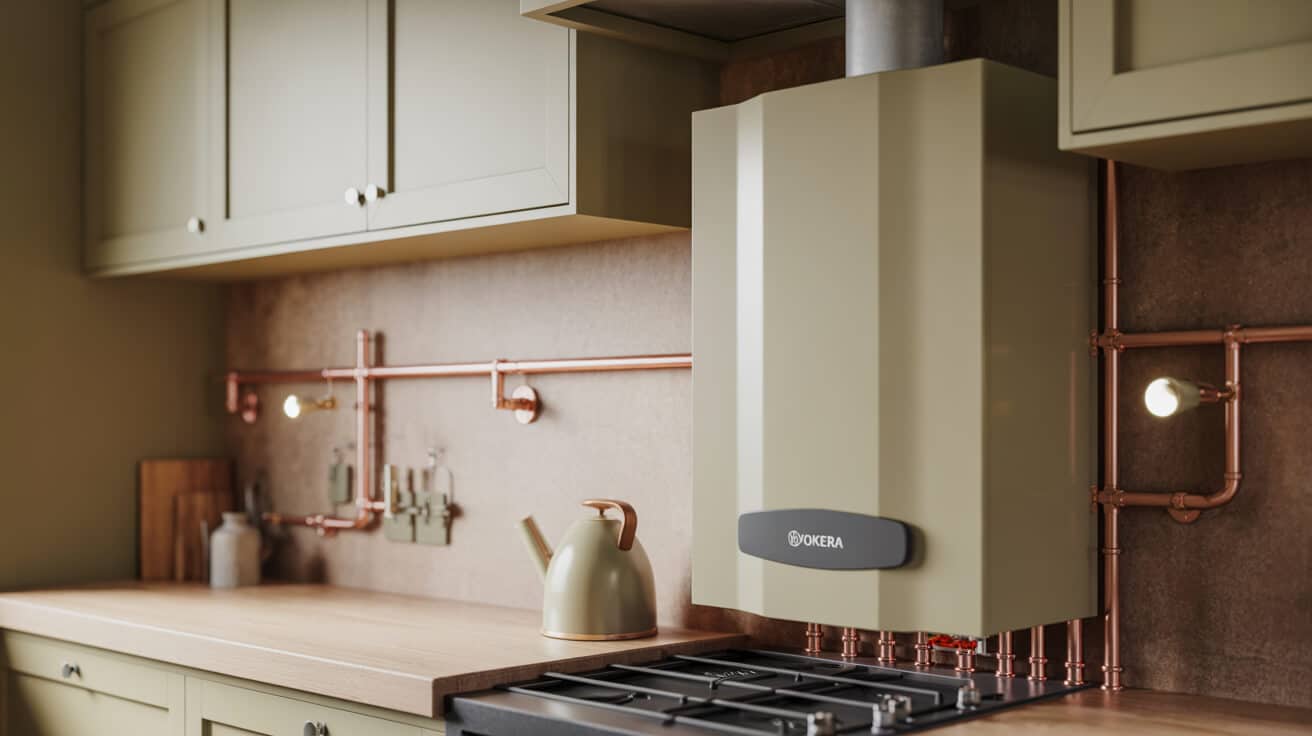Vokera occupies a critical role in the heating infrastructure market, supplying systems tailored for the constraints and opportunities present in contemporary property management, homeownership, and landlord compliance regimes. The company’s product range is woven into the operational fabric of domestic heating, supporting customers ranging from individual homeowners seeking cost-effective warmth to commercial property managers overseeing multisite portfolios. Close attention to legal certification, performance metrics, and maintainability ensures that these boilers remain at the intersection of occupant satisfaction, building efficiency, and statutory responsibility.
Etymology or name origin
The name “Vokera” is a registered trademark originating from the company’s foundation as an independent boiler manufacturer, now positioned under Riello Group’s global umbrella. The brand maintains a consistent identity through decades of market presence, firmly rooted in the British and Irish home heating landscape. Its growth through acquisition and specialisation has enabled the brand to leverage legacy expertise while continuously responding to the evolving regulatory and technological environment that governs the plumbing and heating industry.
Overview / context
Boilers represent one of the most consequential categories in the plumbing and heating sector, responsible for regulating warmth, hot water, and — increasingly — energy consumption within the built environment. Their essential function cuts across property types, serving small urban dwellings and large commercial installations alike. In everyday use, a boiler’s performance underpins your organisation’s comfort, compliance, and operating costs.
In this landscape, systems manufactured by Vokera reflect industry best practice by adopting high-efficiency condensing designs, built-in adaptive controls, and digital diagnostic capabilities, supporting both managed maintenance cycles and responsive fault detection. The modularity and scalability of these products also facilitate integration with property management platforms and compliance tracking tools, reinforcing their appropriateness for modern housing assets and socially rented portfolios.
Industry context and adoption
Legal requirements and building codes in the UK and Ireland — notably Gas Safe registration, Part L of Building Regulations, and ErP directives — shape the contours of the boiler market. Vokera boilers align with such standards, offering product variants suitable for both new build and retrofit scenarios, and facilitating a broad adoption across urban and suburban contexts. Property managers, including agents working with Plumbers 4U, frequently select Vokera systems for their combination of straightforward installation and standards-aligned operation.
Applications in residential and commercial settings
Vokera boilers address the needs of small flats, detached homes, and large estate properties, as well as offices, community facilities, and retail venues. For tenants and landlords alike, rapid hot water delivery and ease of heating control affirms resident satisfaction and regulatory compliance, while facilities managers value the fault diagnosis systems and scalable maintenance routines. The ability to deploy the same core technological foundations across disparate building types helps ensure a familiar and stable base for both technical staff and everyday users.
Market position and notable partnerships
The company’s approach to market integration includes active partnerships with merchant supply chains, certified installer networks, and recognised repair agents. This ensures consistent access to product, parts, and expertise. For service providers such as Plumbers 4U, this networked structure enables seamless coordination across supply, installation, and aftercare dimensions, increasing the resilience and responsiveness of your building’s heating infrastructure.
History
Origins and early development
Founded as a specialist boiler manufacturer, Vokera entered the UK heating appliance sector in an era defined by fuel transitions and increasing demand for in-home comfort. From early models focusing on basic hot water and single-loop heating performance, the firm advanced into the condensing era with the introduction of high-efficiency, low-emissions designs.
Technological evolution
The adoption of premix burner technology and the shift to stainless steel and aluminium heat exchangers marked a technological turning point. Over subsequent generations, Vokera integrated advanced modulating gas valves, digital user interfaces, and comprehensive error-detection firmware into their products. This pivot mirrored statutory shifts — including mandatory SEDBUK ratings, ErP labelling, and later, smart controls and weather compensation requirements.
Recent changes and industry consolidation
Vokera’s acquisition by the Riello Group provided greater research, distribution, and component sourcing capacity. As part of this broader ecosystem, product lines have been further optimised for efficiency and ease of maintenance, with new models emphasising compliance, modularity, and seamless retrofit compatibility. The manufacturer’s present strategy focuses on harmonising product design for cross-market suitability while remaining attentive to localised installation and service realities.

Concept / description
Boiler architecture and core mechanisms
Vokera boilers are sealed combustion appliances; at the core, a heat exchanger transfers energy from burning fuel to a closed water circuit. Key subsystems typically include:
- Fan and premix burner: Orchestrate the safe and controlled combustion of natural gas.
- Primary and secondary heat exchangers: These extract heat with minimal losses, maximising efficiency even at low water return temperatures — a hallmark of condensing models.
- Gas valve and electronic modulation: Facilitate precise adjustment of fuel flow in response to fluctuating heating demand.
- PCB (printed circuit board): Monitors outputs from sensors positioned throughout the system, ensuring safe operation and rapid shutdown in case of abnormalities.
- Expansion vessel: Manages pressure changes arising from temperature fluctuations, protecting the system from overpressure and ensuring a long service life.
Component breakdown
Modern iterations include a suite of built-in sensors: flame sensors, thermistors, pressure switches, and air/fuel ratio controllers. Safety-emphasising components such as automatic air vents, mechanical safety valves, and flue gas pressure sensors round out the system. Many models also feature in-product consoles or LCD panels, streamlining configuration, and error handling for both users and engineers.
Smart controls and automation compatibility
Compatibility with programmable thermostats, OpenTherm and proprietary protocols (like BeSMART), and third-party platforms (Hive, Tado, Nest) is offered across most of the lineup. Advanced models permit two-way digital communication, supporting smart zoning, learning schedules, remote diagnostic resets, and weather response. Integration with property automation allows for proactive maintenance and data-driven scheduling.
Functionality / purpose / applications
Domestic heating and hot water
Vokera boilers directly heat water for radiators and supply hot water for bathing, kitchen use, and cleaning via combi or system designs. These capabilities are commonly paired with timer-based and programmable controls that align with the schedules and lifestyles of your household or tenants, providing not only thermal comfort but also enabling careful energy management.
Commercial and multi-site installations
For organisations overseeing multiple or larger buildings — schools, offices, health clinics — the range’s commercial variants offer greater heat output and configurable cascading control. This enables a single manager or service team to balance numerous appliances, automating redundancy and system cycling to extend component lifespans and maintain environmental standards.
Hybrid and renewables integration
Models designed for hybrid use interact with external heat sources, such as solar collectors and air or ground source heat pumps. Integrating such renewables reduces reliance on gas, supports compliance with evolving energy policy, and forms part of strategic sustainability planning for property portfolios aiming to reduce your carbon footprint over time.
Classifications / types / variants
Boiler types and features
Combination boilers (combi):
- Supply instant domestic hot water and heating without separate cylinders or tanks.
- Compact, best for homes with moderate usage and limited installation space.
System boilers:
- Support higher volume hot water use through a sealed, pressurised loop with a separate storage cylinder.
- Appropriate for homes or sites where simultaneous demands must be met.
Open-vented boilers:
- Integrate with gravity-fed cold water tanks and open-pipe expansion systems.
- Less common in new installations, still vital for upgrades in legacy housing stock.
Commercial boilers:
- Offer high-output and the capacity for multiple-unit cascading.
- Installed in estates, business premises, and managed residential clusters.
Model series and notable variants
Vision:
- Emphasises compactness and installation flexibility.
- Wide range of power outputs and user-friendly controls.
Unica:
- Designed for performance and system resilience.
- Enhanced with integrated weather compensation.
Easi-Heat:
- Focused on ease-of-installation and maintenance access.
- Popular among service companies managing time-sensitive contracts.
Verve, Linea, and others:
- Commercial and semi-commercial models with higher capacity, diverse control options, and modular instal capability.
| Series | Key Feature | Typical Output Range |
|---|---|---|
| Vision | Compact, user-centric | 16–35 kW |
| Unica | Weather/Load compensation | 20–35 kW |
| Easi-Heat | Easy-fit, rapid service | 25–32 kW |
| Verve | High-output, modular | 50–120 kW |
Systems / tools / methodologies
Installation and configuration tools
For engineers, proper installation utilises:
- Gas leak and pressure testers: – verify supply and system seals before commissioning.
- Digital flue gas analyzers: – essential for fine-tuning combustion efficiency and verifying emissions compliance.
- Sigma-manometers and pressure gauges: – detect fine changes in system status, crucial for modern low-output, high-efficiency setups.
- Programmer and smart thermostat tools: – required for integrating with digital control infrastructures.
Diagnostic procedures
Modern products feature an onboard diagnostic module displaying live status, error codes, and performance data. A systematic approach to troubleshooting involves:
- Reading and interpreting digital error codes.
- Checking indicated sensors or system components.
- Systematically isolating and repairing or replacing faulty hardware.
- Resetting and retesting under supervision.
Warranty compliance and quality assurance
Warranties are contingent upon proper installation by certified professionals, with service intervals documented in a benchmark logbook. Companies like Plumbers 4U maintain digital service records, ensuring the provision of evidence for manufacturers and regulatory bodies when needed.

Stakeholders / entities involved
End users and owner-operators
Stakeholders include homeowners seeking reliability, tenants and letting agents responsible for safety, and facilities directors balancing cost and compliance. These groups share the need for consistent, safe heating and transparent maintenance documentation.
Registered installers and servicing companies
Only engineers with up-to-date Gas Safe credentials are authorised to instal or commission clearances. Professional service providers — from local firms to companies like Plumbers 4U — are central to warranty protection, fault response times, and compliance with regulations. Their roles span from first fit to annual checks and emergency repairs.
Distributor and partnership networks
Distribution relies on national merchant groups, specialist plumbing outlets, and logistics networks aligning installation, supply, and asset management. Approved partnership and training programmes create a skills pipeline, ensuring that your service providers remain fluent in the latest requirements.
Legal / regulatory / ethical considerations
Gas Safe and industry certifications
Every installation or significant repair, whether in new build, replacement, or retrofit, must be undertaken by a Gas Safe-registered professional. Displaying CE marks, ErP and SEDBUK ratings, and adherence to manufacturer guidelines is required as proof of compliance.
Building Regulations and Boiler Plus standards
The installation of any replacement or new appliance must respect energy efficiency, controls, and hot water safety requirements laid out in Building Regulations Part L and Part G. Boiler Plus directives further demand advanced controls and minimum heat-saving configurations for combi units.
Warranty registration and Benchmark compliance
All warranty claims require strict documentation, typically through a Benchmark logbook, signed at commissioning. Landlords and agents have a heightened duty to maintain evidence of ongoing service, with companies such as Plumbers 4U able to simplify record-keeping for your properties through digital document management and periodic reminders.
Ethical obligations
As the energy and building landscape evolves, professional standards require prioritising occupant safety, energy management, and transparent communication regarding risks and responsibilities after every installation or service intervention. This mitigates liability and maximises peace of mind for property owners and tenants.
Performance metrics / data / measurements
Efficiency and environmental metrics
Efficiency scores approach or meet ErP “A” ratings in current models, while exclusive designs for low-NOx neighbourhoods offer further reductions in emissions. Features such as full modulation, rapid system response, and weather compensation ensure your property maintains performance levels beyond static benchmarks.
Reliability and error code diagnostics
Integrated self-diagnostic systems identify specific component or operational errors — allowing for faster service interventions and less disruption. Noteworthy error codes such as E133 (ignition failure), A04 (pressure loss), and A08 (condensate issues) are defined in documentation, backed by resolution workflows. Reliability is strengthened with regular maintenance and rapid parts replacement on call via market-leading service networks, including those maintained by Plumbers 4U.
Maintenance and servicing
Annual servicing protocols
A standard annual maintenance cycle requires visual inspection, operational checks, component cleaning or replacement, flue gas analysis, and recalibration. Engineering teams maintain full records, with companies such as Plumbers 4U able to offer reminders, emergency callouts, and real-time updates, improving legal protection and peace of mind.
Common repairs and parts replacement
Installer and user experience show that pressure vessel recharging, sensor cleaning, PCB renewal, and expansion vessel maintenance remain common. System flushes to manage scale or sludge, and periodic review of weather compensation systems, further preserve performance.
Legal duties for landlords and agents
Landlords must obtain a valid Gas Safety Certificate yearly for every rented dwelling, necessitating prompt, professional servicing, and record-keeping. Outsourcing these tasks to accredited providers optimises time use for your operations team and supports compliance without manual oversight.
Challenges / barriers / limitations
Technical barriers and frequent issues
Older systems sometimes present challenges with pressure fluctuations, trapped air, or incompatibility with advanced digital controls. Retrofitting into aged buildings can unearth hidden legacy issues necessitating component upgrades or additional flushing.
Troubleshooting guides
Onboard digital error reporting and clearly segmented troubleshooting guidance in product manuals assist both users and engineers. Stepwise instructions, from basic user resets and pressure topping to advanced diagnostics for engineers, enhance both safety and up-time.
Social and economic factors
Initial installation and upgrade costs can be ameliorated by long-term gains in reliability and energy savings. In contexts with limited budget or complex retrofit needs, structured maintenance contracts can help mitigate risk.
Philosophical or policy objections
Discussions about the place of gas-fired boilers in long-term decarbonization raise important questions about future investment in new installations vs. hybrid or all-electric alternatives in UK and European heating markets.
Impact / influence / legacy
Contributions to sector standards
As part of the Riello Group, the Vokera brand has contributed to higher expectations for installer training, documentation, and system performance. Collaborations with standards-setting bodies have advanced safety and best practice benchmarks that now shape the wider plumbing and heating market.
Adoption rates and feedback
Noted for widespread appeal in both private and social housing, products have consistently recorded robust installation rates, with positive user experiences centering on the ease of use, low maintenance demand, and accessible support channels.
Future directions, cultural relevance, and design discourse
Technological roadmap
Imminent and forthcoming model updates centre on greater integration with renewable districts, optimised modulation for net-zero-ready installations, and next-gen remote monitoring aligned with legislative changes around energy data transparency.
Sustainability, hybrid systems, and eco-policy drivers
The rising policy emphasis on decarbonization and hybrid heating is precipitating rapid change in both new product development and support for existing assets. Advanced models placed in your organisation’s portfolio are designed to remain compatible with these new frameworks.
Design and cultural context
Cultural expectations now demand that domestic and commercial properties prioritise both safety and the sustainable use of resources. Vokera’s approach — focused on modular, accessible, and intelligent system design — aligns with these values, reinforcing the confidence you place in modern heating system investments.

